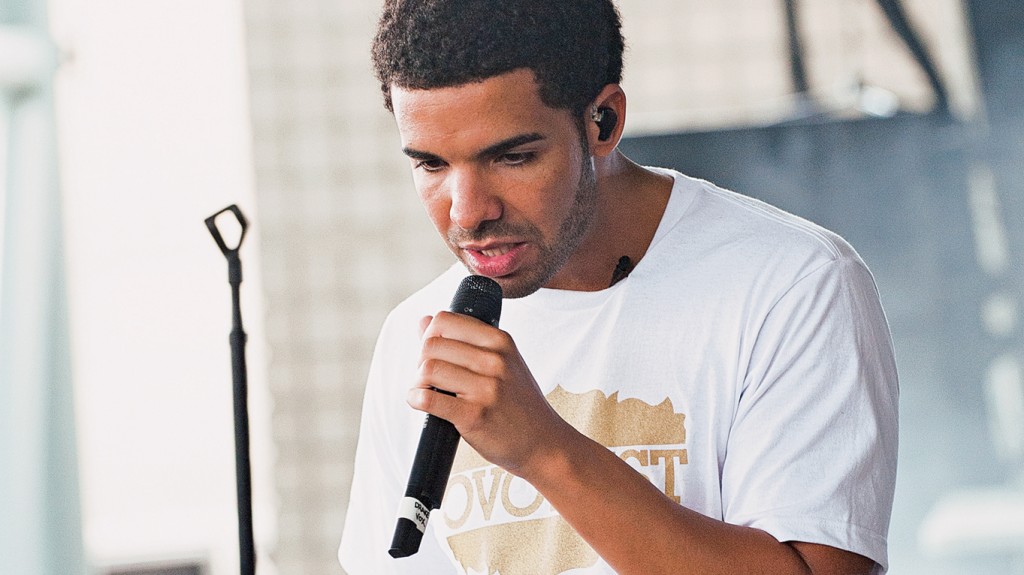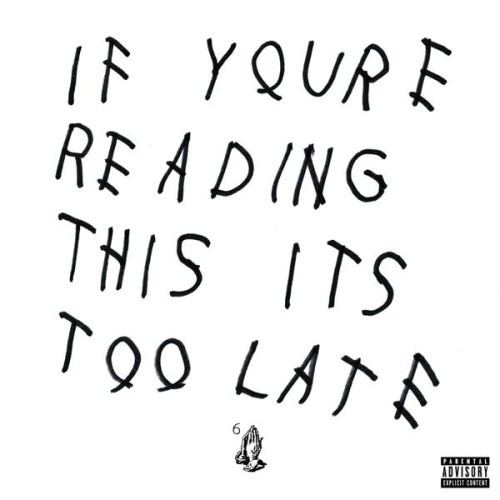Soft no more: Drake makes a power move
This is no Beyoncé move: How Drake’s eminently average surprise ‘album’ is proof he’s totally in charge
Canadian recording artist Drake performs at Bing Bar during the Sundance Film Festival in Park City, Utah January 22, 2012. REUTERS/Mario Anzuoni (UNITED STATES – Tags: ENTERTAINMENT) – RTR2WNWB
Share

 For the extent of his career, the Toronto rapper Drake has been plagued with the suggestion that he’s soft, a harsh tag to hang on someone in a genre that considers ego and confident hubris to be core tenets. To his credit, he’s embraced that as part of his identity: When he was spotted on the Raptors sidelines taking a lint roller to his pants, he signed off on a campaign to produced a limited-edition run of rollers; when he took to the court with the Kentucky Wildcats during pre-game warmups and promptly shot an airball, he re-shared the embarrassing memes on his Instagram account. And even if his detractors point to pillowy pop tracks like Just Hold On We’re Going Home to rip into him, Drake can look to his wealth, popularity and awards to remind him that sometimes, soft is okay.
For the extent of his career, the Toronto rapper Drake has been plagued with the suggestion that he’s soft, a harsh tag to hang on someone in a genre that considers ego and confident hubris to be core tenets. To his credit, he’s embraced that as part of his identity: When he was spotted on the Raptors sidelines taking a lint roller to his pants, he signed off on a campaign to produced a limited-edition run of rollers; when he took to the court with the Kentucky Wildcats during pre-game warmups and promptly shot an airball, he re-shared the embarrassing memes on his Instagram account. And even if his detractors point to pillowy pop tracks like Just Hold On We’re Going Home to rip into him, Drake can look to his wealth, popularity and awards to remind him that sometimes, soft is okay.
But then, on a sleepy Thursday night, Drake released a 17-track album-cum-mixtape, If You’re Reading This It’s Too Late. Many have compared the release to Beyoncé’s shocking 2013 release of her self-titled fifth record, but this is hardly the complete immersive audio and visual experience that came with the fully formed Beyoncé. No—listen to IYRTITL and it feels like a throwaway mixtape, a kind of compilation of cutting-room scraps and previously released-for-free songs.
Mixtapes, usually released often and for free, have long been an easy way for rappers to get visibility, and they are, in fact, exactly how Drake launched his own career in 2009, when So Far Gone earned him serious notice—”Got rich off a mixtape, got rich off a mixtape,” he exults on the 2011 track Underground Kings. But unless you’re Drake’s mentor, Lil Wayne, elite rappers don’t typically put these out. That’s especially true, perhaps, of Drake, given that his rise has been predicated on larger album experiences—fulsome listening experiences that sonically and thematically cohere from Track 1 to the end—and his generally careful curation of his legacy and teflon image.
So why this? Why now? And where is the album that we were expecting, the Toronto tribute Views from the Six? The answer is that it’s all clearly part of a power move against his label, Young Money/Cash Money Billionaires (YMCMB)—and it’s clear we weren’t giving him enough credit by calling him soft.
In 2009, YMCMB signed Drake to an extremely lucrative four-album deal (one that included a massive $2-million advance) and, while many thought Views From the Six was going to be the album that wound down that contract, things have obviously changed. The biggest, of course, is his mentor Lil Wayne’s feud with the label he helped put on the map over royalties. The label’s also been preventing him from releasing the highly anticipated Tha Carter V, which, at one time, was discussed as possibly being his last album, although with his newfound fire (he’s been releasing tracks in vitriolic spite of YMCMB), that feels unlikelier than ever. Wayne has also vowed to take Drake and his other pupil, Nicki Minaj, with him; they had been, to this point, mostly silent on the claim.
And things haven’t always been hunky-dory in the YMCMB camp for Drake, either; despite the label giving him one of the most lucrative contracts in rap history, he launched a suit against it over unpaid royalties in 2012. This is, after all, precisely the issue that Lil Wayne is currently fuming over, and YMCMB has an ignoble history of misplacing royalties; unpaid cheques led founding key players the Hot Boys and Mannie Fresh to part ways with the label.
So did Drake just outmanoeuvre his own label, tossing off the final debt he contractually owes YMCMB so that he’s free to join his guru’s campaign against it? It feels like that’s the case. Why else would this scraped-together, no-promotion, no-radio-singles effort be released, only to be sold on iTunes, other than to qualify it as an album? At whom else could the horror-movie scratched-out title be directed, other than his label, which wouldn’t have been able to stitch back together the Pandora’s box once the mixtape was on iTunes? He’s effectively scuttled his fourth album in favour of freedom.
And on top of everything else, Drake has proven he can have his contract-ending cake and eat it too; Complex predicts the album will sell 500,000 copies this weekend alone. After all, a power move is only truly a power move if you have the genuine leverage to back it up—otherwise, it’s mere short-sighted chutzpah. By releasing this record, Drake has proven here that he’s not just a global superstar, he’s a business unto himself, which has always been the case: More than 600,000 digital downloads of his breakout single Best I Ever Had, which had already been available for free online for months before it came out on iTunes, proved he was bankable from the get-go. The album is, then, more of a cultural artifact than a musical one, a signpost of Drake’s molting from the shell of YMCMB. We’ll see where his career goes from here. But one thing’s for sure: It’s clear the intervening superstardom hasn’t let him go soft.